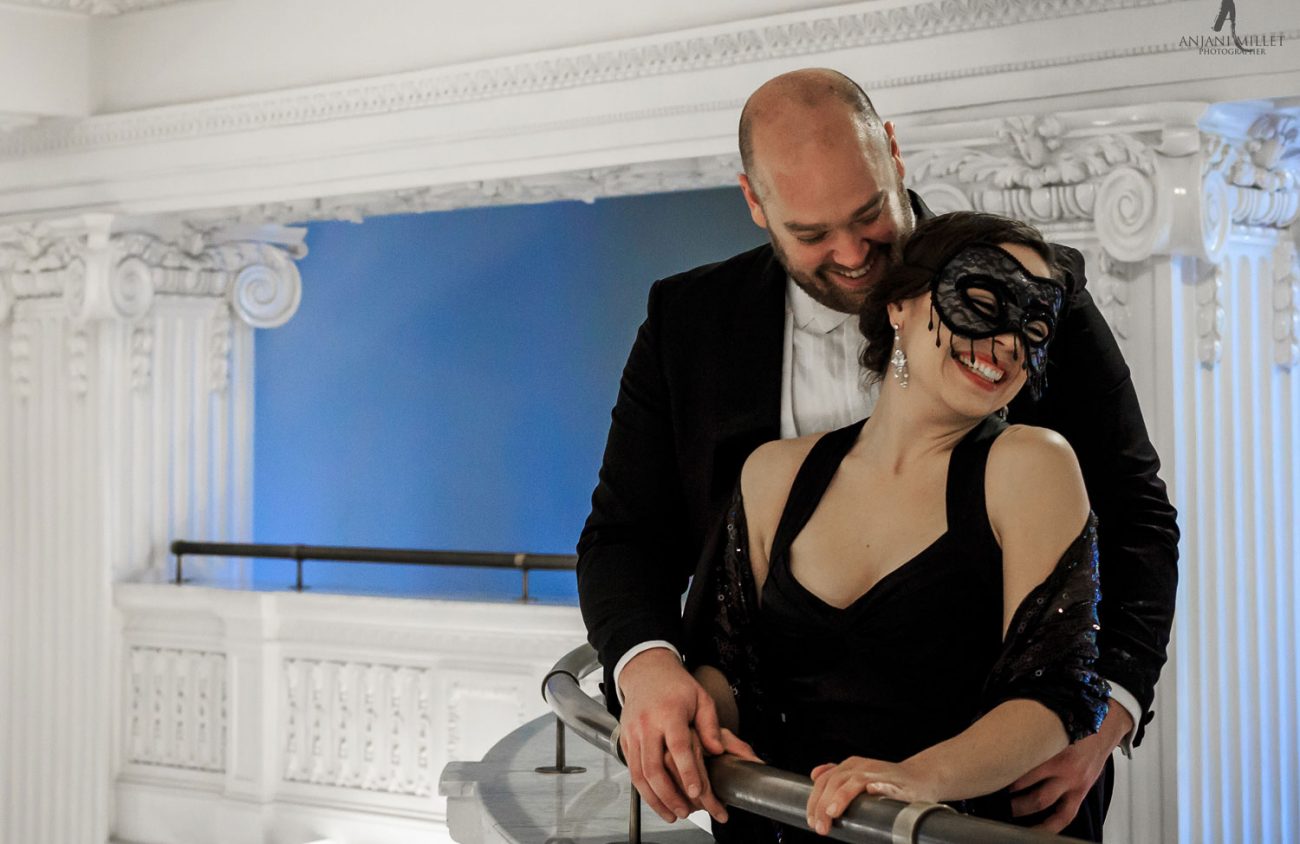An opera company that produces a New Year’s Eve show typically has two choices: It can present a full opera, often Richard Strauss’ Die Fledermaus (The Bat), which culminates in a bubbly masked ball. Or you can do some version of Opera’s Greatest Hits, featuring popular arias and (depending on budget and whether the choristers have recovered from their Messiahs) choruses from the top 10 operas that still constitute the bulk of American operatic fare.
Or you could do what Eugene Opera is doing with its “Opera Trio” this New Year’s Eve: Present one act from three very different operas, which provides a snappy, risk-averse sampler (chances of liking at least some of the music can only go up) for the newbies presumably more likely to show up for this party than a standard performance.
What EO couldn’t have known when it planned this triple treat is how appropriate it would be for the coming year.
The show opens with Act I from Verdi’s 1871 Aida, which culminates in the installation of Egypt’s new commander-in-chief — the warmongering Radamès, who’s determined to make war upon the Nubians for threatening Egypt’s way of life. Musically, you get some of the grandest music in all of opera — a stirring curtain-raiser for the evening, and given the rhetoric and military-dominated cabinet of America’s new corrupter-in-chief, perhaps a herald of our own imminent martial misadventures.
The dark, dramatic second New Year’s segment, the third act of Francis Poulenc’s 1956 Dialogues of the Carmelites, contrasts sharply with Aida. Set during the French Revolution, it recounts the sacrifice of nuns condemned to death by the government for refusing to turn over their priory to the state.
I’ll save a description of the chilling final scene, one of the most powerful in all of opera, to avoid spoiling it for newbies. It’s fascinating to see how directors choose to stage it, but the music is always searing, and again, the story might have unexpected contemporary relevance: Given our incoming leader’s regressive attitudes about justice, free speech and human rights, let’s just say that we should all be worried that heads may roll.
The evening’s upbeat third segment differs from both predecessors: the second act of that batty Strauss comedy Die Fledermaus and its champagne-soaked Viennese masked ball. It ends the evening — and this miserable year — on a note of needed inebriation and wry laughter. Dance, drink and be merry, for tomorrow, well …
Assuming we make it to 7:30 pm Tuesday, Jan. 10, we can celebrate the happier side of American populism with a house concert of traditional Appalachian stringband music at 755 River Road (contact mmeyer@efn.org for more info). Clawhammer banjo mistress Allison de Groot and fiddler Tatiana Hargreaves are familiar to folk fans from their respective work with Bruce Molsky and Dave Rawlings. This show will doubtless speak more to homeland values than any cutthroat capitalist New York billionaire.
